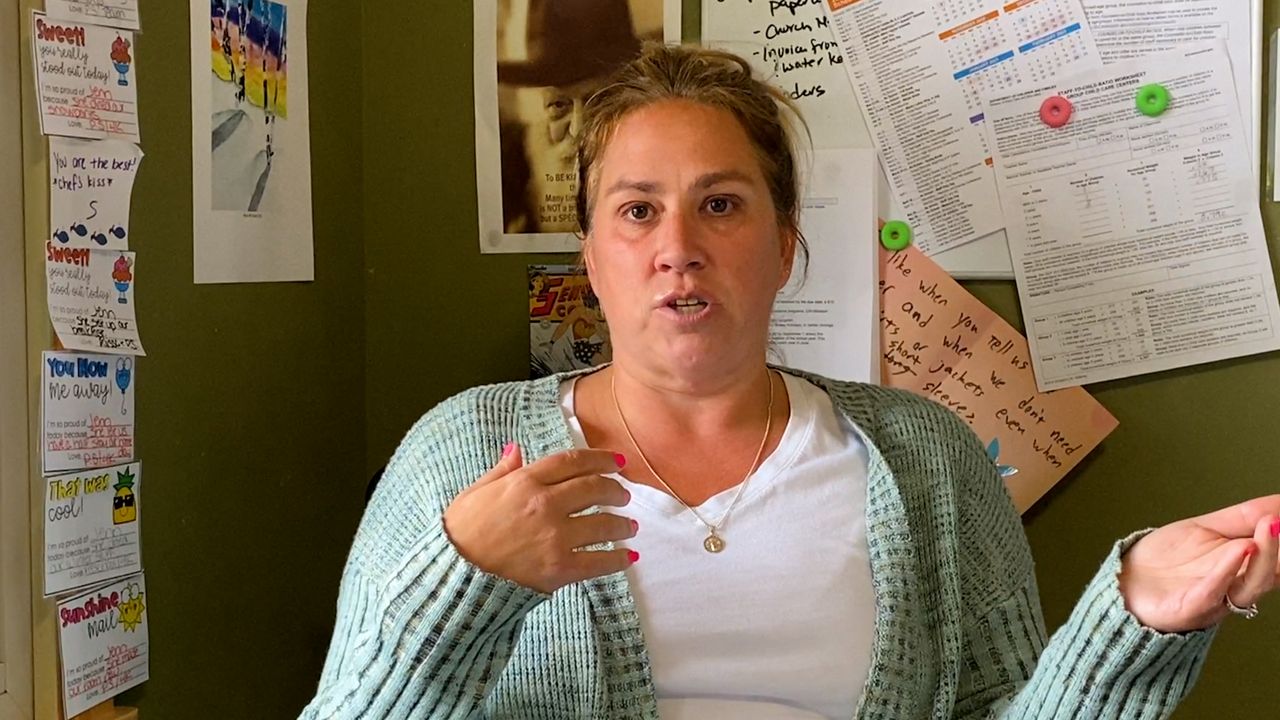MILWAUKEE — Gov. Tony Evers traveled the state Tuesday as he called for a special session to bring lawmakers back to Madison to pass a nearly $1 billion workforce development package.
The governor pushed to fund several of his priorities cut from the budget passed by the Legislature earlier this summer. A big chunk of the package, $365 million, would go toward supporting child care providers, which Evers believes is critical to Wisconsin’s workforce.
“I’m calling on the Legislature to finish their work on the 2023-25 biennial budget and pass a comprehensive plan to address our state’s chronic workforce challenges,” Gov. Evers said during a Tuesday morning press conference in Milwaukee. “Republicans have offered no real comprehensive plan to address our state’s workforce challenges to date. Truly addressing these longstanding challenges must include efforts to ensure workers, who are already working, and are a part of the workforce, can remain in the workforce.”
For the governor, that includes spending more than $340 million to fund the Child Care Counts program permanently.
Providers who relied on those federal dollars, which are set to run out early next year, said they feel stuck in the middle.
“Where we want to try to find these fine lines of can we increase our salaries to our teachers who completely deserve better salaries, and can we pass a little of that expense off to our parents without, you know gouging our parents out of child care, which is already a high cost,” Jenn Bilderback with Big Oak Child Care Center in Madison explained.

Costs were a problem long before the pandemic, as was the competition for better benefits and wages within the industry. However, now many providers feel they are no longer just competing with each other.
“We’re losing staff to completely outside of the industry that are paying better wages, higher wages, and we just can’t compete,” Bilderback said.
Tuesday marks the 13th special session called by Gov. Evers, and though Republican leaders have gaveled in and out of previous ones with no action or debate, the governor is still holding out hope.
“Because at the end of the day, I know that Republicans do not want to be responsible for farmers, hospitals, schools, and other businesses in their district not being able to find workers because parents can’t find care for their kids,” Gov. Evers said.
As part of the special session to be held on Sept. 20, the governor also called for creating a paid family and medical leave program, increasing investments in the University of Wisconsin (UW) System, and boosting spending in specific sectors, including health care.
When it comes to child care, Republicans on the Joint Finance Committee (JFC) allocated $95 million to several existing child care related programs, including:
- $45 million for the Wisconsin Shares program, which provides subsidies for low-income families to pay for child care
- $30 million for Quality Care for Quality Kids, which will fund the resumption of YoungStar bonuses paid directly to child care centers
- $5 million for REWARD stipends that are paid directly to child care workers
- $15 million to create a Child Care Revolving Loan Fund to help child care facilities with improvements, upgrades and other needs (which Gov. Evers turned into a grant program using his line-item veto powers)
Republicans, however, called the move by Evers a “rehash” of the governor’s “tax and spend budget.”
“Instead of returning the state surplus to hardworking Wisconsinites, Governor Evers used his veto pen to raise taxes on every Wisconsinite making more than $27,630. Now he wants to use that same surplus to grow government and create new entitlement programs,” Majority Leader Sen. Devin LeMahieu, R-Oostburg, said in a statement. “The best way to fix Wisconsin’s workforce shortage is to create a competitive tax structure that will attract talent and private investment to our state.”
When Gov. Evers signed the budget last month, he also issued 51 partial line-item vetoes, which cut the two-year spending plan by almost $4 billion. Much of the reduction came from scaling back the historic income tax cut Republicans wanted. The governor’s proposal would rely on $1.1 billion of those funds to cover the cost of his initiatives.


